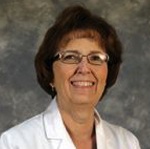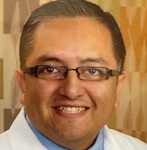The first physician assistants (PAs) were Vietnam-era medics who transitioned to civilian careers in general medicine. However, specialties like emergency medicine, surgery, and dermatology are increasingly realizing the benefits of bringing PAs and nurse practitioners (NPs) into their practices.
Having PA/NPs on staff allows a practice to serve more patients while keeping costs reasonable. In addition, PA/NPs are
wonderful patient satisfiers who provide valuable face time while freeing physicians to handle more complex cases.
Unfortunately, training programs are struggling to meet this growing demand for specialization. This is especially true in the field of emergency medicine, where PAs must work at a fast pace, manage multiple patients and perform a variety of challenging procedures.
With the demand for qualified emergency medicine physician assistants (EMPAs) at an
all time high, what can be done to bring new grads up to speed? Here’s how our hospitals, Banner Boswell Medical Center and Banner Del E. Webb Medical Center in Arizona, are bridging the gap. We're excited to be part of this program and believe that the same model could be used by other hospitals to support new graduates' transition to practice.
A Challenging Environment
It's true that PA students typically complete a four-to-six-week emergency medicine rotation (and sometimes an additional elective rotation in the specialty). But these experiences rarely reflect the realities of practice. For example, students focus on one ED patient at a time in order to deepen their skills. However, it's not unusual for a practicing EMPA to manage 12 to 15 complicated patients at once.
When EDs do hire newly licensed PAs, the training period can be quite challenging for both the new hire and the rest of the team. And here at Boswell and Del E. Webb, the bar for new hires is especially high because of our acuity mix. The Sun City area is the seasonal home of thousands of snowbirds — retirees who tend to need more and more complex emergency care. While your average American ED admits less than 20 percent of its patients, Boswell admits 40 percent.
Of course, the same barriers that prevent new grads from entering emergency medicine also thwart EDs struggling to recruit EMPAs in sufficient numbers. So to support the profession and bridge the gap from school to work, Boswell and Del E. Webb created an intern program.
A Home Grown Solution
EMPA interns train on the job to develop the decision-making and procedural skills they need to launch a successful career. Our interns are hired as full-time providers with full-time benefits (pay is at a reduced rate). The program lasts six months, but can be extended as needed to provide additional supervision and practice.
This year, we plan to host five interns — three at Del E. Webb and two at Boswell.
Our interns are generally newly licensed PAs, but we also accept PA/NPs practicing elsewhere in our hospitals, so long as they have the procedural skills to be credentialed for ED work.
To maximize patient exposure, interns work four to five eight-hour shifts. They're paired with an experienced mentor for weekly supervision meetings, but also work with and learn from everyone in the department.
Interns start alongside physicians in the main ED. Working at their own pace, they practice managing patients with high-acuity conditions like stroke and heart attack. As their skills and confidence grow, physicians encourage interns to take on more complex cases. (We don't want them to waste valuable learning time wrapping ankle sprains!) They also get a chance to consult with specialists, admit patients and conduct handoffs with the hospitalist team.
After a couple of months, interns move over to the front end to treat less-acute patients alongside experienced PAs. This is their chance to work on discharge and follow up — often in consultation with primary care physicians, social workers and case management. At end of intern period, they try their hand at the night shift, working alongside an experienced PA.
In addition to their clinical work, interns complete CME modules in emergency medicine and attend staff meetings and journal clubs. They also work with their supervisor to research a clinical interest and deliver a 15-minute presentation to the department. (A recent example: management of diabetic ketoacidosis.)
Benefits All Around
The internship program focuses on key skills PAs need in order to launch a successful emergency medicine a career. Everyone on the team is committed to helping them develop:
- Decision-making and clinical judgment
- Procedural knowledge
- Productivity
- Documentation skills (complexity and completeness of charting)
- Interprofessionalism (working with nursing, pharmacy, social work and case management)
Unlike a residency, an internship doesn’t confer a formal degree or certification.
However, it does provide the experience EMPAs need to step into any ED and contribute from day one. Another advantage of having a less formal program is that it's relatively easy to administer. Any ED can create an internship opportunity, even if it's not part of a teaching hospital.
Feedback from former interns has been positive. They appreciate being in a supportive, nurturing environment where they can ask questions without feeling foolish. They also gain a great deal of confidence in their skills. Occasionally, an intern decides that emergency medicine just isn’t a good fit, which is a valuable learning experience in itself.
Our EDs also benefit from having the interns. They provide extra manpower during our busy winter season, and the program has improved our relationship with local PA training programs. We now have an opportunity to visit campuses and present to students each year.
Best of all, training the interns is a team effort that brings our entire ED staff closer. Physician and PA/NP leaders work together to interview and hire the interns. Team members from all professions guide the interns toward their goals and mentor different aspects of practice.
Bright Futures Ahead
So how much do we believe in our program?
While we can’t promise that an internship will lead to a permanent position, Boswell has hired all of the interns that successfully completed their program as of 2014. At Del E. Webb, six of the ten full-time PAs on staff are former interns, including one of the "inaugural" interns who transitioned to the ED from urology in 2007. (When we can’t hire a successful intern ourselves, we commit to serve as their "job placement office" and provide them with strong references.)
We have thoroughly enjoyed hosting the interns and believe the program adds a lot to both of our practices. As EMPAs, it's up to all of us to help our profession grow and thrive. The internship model is a positive way to increase opportunities and can be adopted by almost any ED.























